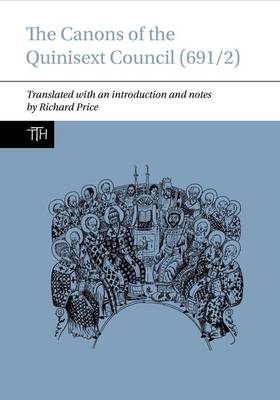
- Retrait gratuit dans votre magasin Club
- 7.000.000 titres dans notre catalogue
- Payer en toute sécurité
- Toujours un magasin près de chez vous
- Retrait gratuit dans votre magasin Club
- 7.000.0000 titres dans notre catalogue
- Payer en toute sécurité
- Toujours un magasin près de chez vous
Description
These canons (or rules) for church organization and life and Christian morals issued at a council held in Constantinople in 691/2 form the foundation of Byzantine Canon Law. They show an intense concern to restore the proper discipline of clerical life after the chaos brought about by the Arab invasions. The rules for the laity show a concern to secure obedience to the Church's rules about marriage, proper respect for sacred space, and the suppression of customs of pagan origin. Particular interest attaches to the canons that express disapproval of certain customs of the Western Church and of the Armenian Church. Was this an attempt to impose Byzantine hegemony, or simply a revulsion at customs that seemed wrong? The Byzantine emperor tried repeatedly to get the Pope to give the new canons the stamp of his approval; his failure marks an important stage in the mounting divergence between the Greek and the Roman Churches. The translation is accompanied by full annotation, while the introduction sets the council in its historical context, in both the history of the early medieval world and the development of Eastern Canon Law.
Spécifications
Parties prenantes
- Auteur(s) :
- Editeur:
Contenu
- Nombre de pages :
- 224
- Langue:
- Anglais
- Collection :
Caractéristiques
- EAN:
- 9781789622362
- Date de parution :
- 12-09-20
- Format:
- Livre relié
- Format numérique:
- Genaaid
- Dimensions :
- 147 mm x 211 mm
- Poids :
- 294 g

Les avis
Nous publions uniquement les avis qui respectent les conditions requises. Consultez nos conditions pour les avis.






